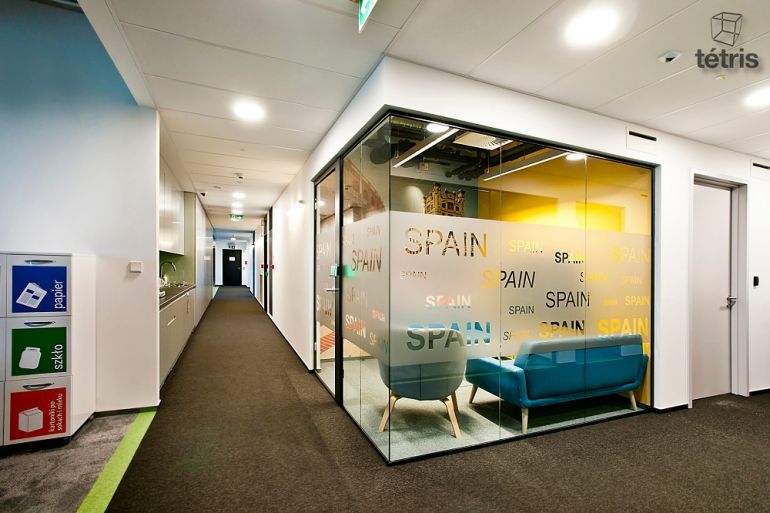The most important factors which should be taken into consideration by the investor while choosing a partner are: accounting liquidity, rules for provided warranties and cost transparency. No wonder that the contractor often has to pay to the sub-contractors and finance a large part of the material in advance.
Tétris designed and built the first part of the new office of Sage last year. The company has also completed all design works of two other floors. While analyzing this example, we may answer the following question: What aspects are especially important while choosing a contractor?
Pre-funding
The investor values time because each day of delay may generate additional costs (for instance, loss of income related to delay in starting the activity). The contractor receives a remuneration in specified portions as a part of investment execution. At the beginning (due to long terms of delivery), they should order most of the materials needed. Unfortunately, the contractor has to pay to the producers of materials in advance (even up to 40-50% of the price) before making out the first invoice to the investor, thus pre-financing a part of the undertaking.
It is a great advantage for the client that we may pay down the amount of 5-6 million zlotys within a month. If we are not able to do it, the project waits for its performance two or three months till the moment of finding the means. When we work for large companies, we need to take corporate rules of invoicing into consideration. The norm is 60- or 90-day payment days – explains Paweł Brodzik, Managing Director at Tétris.
When we have 2-3 months for project execution, we need to finance the costs of sub-contractors very quickly. Then we only wait for paying the invoices by our clients. What is more, long payment dates are a normal practice in many corporations. Unfortunately, it is often a problem to spend huge sums of money at once for many fit-out companies which deal with accounting fluidity.

One Guarantee
Pre-funding is not the only challenge faced by the contractor. They often need to present a bank or insurance guarantee as it secures the right contract execution. In the Sage project, these amounts were estimated at several dozen million zlotys. In order to maintain accounting fluidity, Tétris uses its own means and depends on the warrant provided by JLL. These two companies have a great potential which allows them to secure an investment of any size in respect of design and construction of interiors – says Paweł Brodzik.
The type and amount of guarantees are also of great importance. It is a common practice for the market that the contractor provides two bank and insurance guarantees to the investor. One of them includes the implementation period whereas the other one – quality guarantee and warrant period. In the case of Sage, Tétris has applied the formula of one bank guarantee. It secures two periods at once and their value is automatically reduced after the completion of construction works at the specified level.
One document is more comfortable for the investor as it provides no risk of occurring a blank in the period of the secured guarantee. The investor is certain that security against the contract provides them with a quality guarantee and warrant. There is no necessity of checking if the other guarantee is on time – says Anna Wąsiewska, lawyer at Wawer Wąsiewska. Adwokaci. Spółka Partnerska legal office.
Unfortunately, the investor should pay attention to the fact that the contractor with a worse accounting fluidity may have some problems with banks which do not agree for guarantee periods longer than 12 months. It is related with the necessity of renewing the security.

Standarization
Any investor who plans to execute their projects in several countries should check which of them has a contractor or companies from one group. If they intend to continue similar projects in several UE countries, contracts concerning finishing of interiors may be proceeded in many countries in a very similar form. It allows for saving time and costs. It results from the fact that once the contract is negotiated, it is already adjusted to corporate guidelines and specifics of a given client. The only changes have to be done in the area of works or necessity of adjusting to local legal regulations – says Anna Wąsiewska.
If the investor chooses the same contractor to execute a different project, they may count on better understanding of their style and needs. In the case of Sage, we had two separate investments with the same design, values and guidelines concerning functionality of new interiors – says Paweł Brodzik, Tétris.





